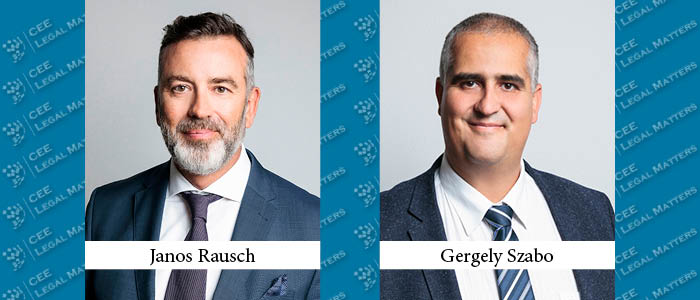The Hungarian telecoms market saw several major transactions during the past few years, with 2022 and early 2023 witnessing undoubtedly the largest transaction in decades: the acquisition of Vodafone Hungary by 4iG (51%) and state-owned Corvinus Zrt. (49%) for a deal value of approximately EUR 1.7 billion.
4iG further strengthened its position in the Hungarian market and is now a converged operator having a large customer base across mobile and fixed communications, as well as a powerhouse in the CEE telecoms landscape. The involvement of the Hungarian state in the transaction is a step towards realizing the governmental vision of creating a national ICT champion. According to the news, Vodafone Hungary will likely be rebranded to “One”. In addition to its newly acquired majority in Vodafone Hungary, 4iG owns a considerable stake (directly or indirectly) in Digi, Invitech, Antenna Hungaria, Hungaro Digitel, and Yettel Hungary. Therefore, the biggest questions for 2023 are how 4iG can integrate Vodafone Hungary into its portfolio, what steps will be taken for the smooth interoperability of the different systems and assets, and what synergies can be reached within its portfolio.
The other topic of interest for 2023 is the availability of passive telecoms infrastructure, as 5G networks need significantly more masts and towers to cover the same area. In anticipation of that, in November 2020, Vodafone Hungary de-merged its infrastructure assets (ground towers and roof-top sites) and established Vantage Towers, which it still owns. The access to and use of passive infrastructure (including co-location and use of its existing Digi and CETIN towers and sites) will be an interesting question for 4iG in the next years.
Further to the above transaction, there were and will be interesting legislative changes affecting Hungarian TMT players. In early November 2022, the Hungarian Competition Authority (HCA) issued a new guideline covering influencer marketing issues and, thus, the media industry. The guideline provides definitions for: influencer, content, consideration, commercial practice, and editorial content. The HCA gave detailed practical advice on how to announce content that has received a consideration, while the guideline summarizes further requirements aimed at appropriate advertising for marking sponsored content. Moreover, the guideline deals with the liability of different players and provides tips for due compliance. As the devil lies in the details, we would suggest developing control points, doing continuous monitoring, and having detailed written contracts with influencers covering all aspects of their advertising.
In addition to the above, one must also follow the current EU trends and keep an eye on the upcoming AI, cyber, and data legislation affecting the TMT industry as well. Gatekeepers beware: the Digital Markets Act (DMA) will serve as an ex-ante instrument for fixing digital markets even before the large online platform might endanger fair competition and more user choices. The DMA sets clear dos and don’ts for the daily operation of gatekeepers to ensure fair and open digital markets. The relevant rules will be applicable from May 2, 2023, while the designation of gatekeepers will be made by September 6, 2023, at the latest.
In addition to the DMA, the Digital Services Act (DSA) will be another hit. The DSA regulates providers of intermediary services, hosting services, online platforms, and very large platforms to fight against illegal content or goods and promote traceability, plus provide safeguards for users. The relevant rules of DSA will be applicable from February 17, 2024, while the designation of large online platforms and search engines will be made well in advance.
Other than the DMA and the DSA, the Data Governance Act will also certainly affect market players and the creation of the framework of data access and data sharing (rules are applicable from September 24, 2023), while the new NIS2 Directive will provide for strengthened cybersecurity (although its implementation will be mandatory from October 2024). Moreover, it will be interesting to follow the development of the AI Act, Cybersecurity Resilience Act, and Data Act, as well as the long-awaited ePrivacy Regulation. The effects of the Vodafone transaction together with the ever-changing legislative landscape will provide sufficient challenge for Hungarian TMT professionals for the upcoming period.
By Janos Rausch, Managing Partner, and Gergely Szabo, Partner, Ban, S. Szabo, Rausch & Partners
This article was originally published in Issue 10.3 of the CEE Legal Matters Magazine. If you would like to receive a hard copy of the magazine, you can subscribe here.



